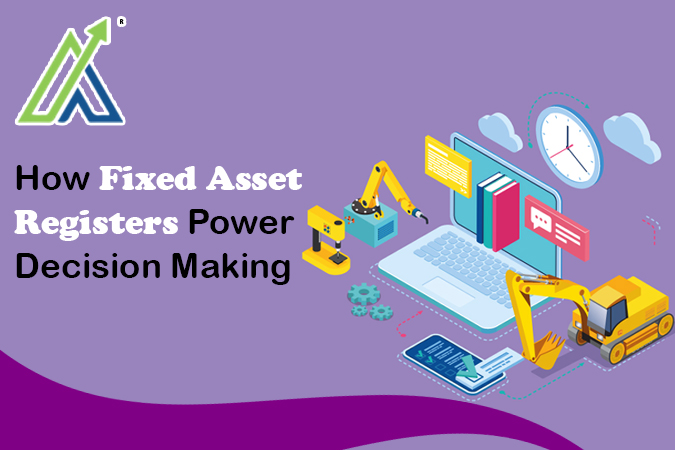Making smart business decisions isn’t just guesswork; it’s all about the data. Enter the fixed asset register—a killer tool that lists every single asset a company owns, with all the juicy details. Let’s see how these registers kick decision-making into high gear, packed with sharp examples.
What’s a Fixed Asset Register Anyway?
Think of a fixed asset register as a master list. It logs everything: acquisition dates, costs, locations, and depreciation of assets. From giant manufacturing plants and machinery to sleek office buildings and prime land—everything’s on there. Having this info ready means companies can pull up reliable data in a snap.
Supercharging Operational Efficiency
Fixed asset registers boost efficiency big time. Imagine a textile manufacturer investing in automated looms. The register records each machine’s details, location, and maintenance history. This lets the company schedule maintenance like a pro, cutting downtime and ramping up production.
Nailing Financial Planning
Financial planning? Piece of cake with a fixed asset register. Take a pharmaceutical company tracking lab equipment depreciation. By knowing exactly when gear gets old, they can budget for replacements and upgrades without any nasty surprises. Always the latest tech, no financial hiccups.
Strategizing Expansion Moves
Expanding? The fixed asset register is your best friend. Picture an automotive company upping its production game. The register helps spot which assets are on their last legs and which can be moved to new plants. Smart asset use means smart investment decisions, making every dollar count.
Mastering Cost Management and Budgeting
Managing costs and budgets is crucial. An IT firm drops a bundle on a fancy new office. The fixed asset register helps track how long-term perks like lower rent and tax breaks stack up against that initial spend. Clear financial impacts mean better budget decisions and more efficient fund allocation.
Nailing Compliance and Risk Management
Compliance is non-negotiable, especially for industries like chemicals. A fixed asset register keeps track of all the compliance details for each asset, from emission levels to waste protocols. This ensures quick responses to regulatory audits and dodging hefty fines.
Boosting Brand Value and Customer Trust
Fixed assets also polish a brand’s image. A high-end hotel chain leverages its swanky properties to build a top-tier brand. The fixed asset register tracks maintenance and upgrades, ensuring everything stays in mint condition. This meticulous care pulls in high-end clients and builds rock-solid trust.
Driving Technological Innovation
In tech, staying cutting-edge is everything. A startup investing in the latest hardware logs each piece in the fixed asset register. This helps plan future upgrades, ensuring the company keeps innovating and delivering top-notch solutions to clients.
Streamlining Audits
Audits don’t have to be a pain. A retail chain with numerous outlets can make audits a breeze with a fixed asset register. Auditors quickly verify asset details without endless physical inspections, keeping everything smooth and transparent.
Questions to Understand your ability
Ques1: What’s a big perk of having a fixed asset register?
- Chaos
- Efficiency
- Guesswork
- Confusion
Ques2: What crucial detail does a fixed asset register keep track of?
- Revenue
- Depreciation
- Sales
- Inventory
Ques3: What does a fixed asset register ensure for regulatory rules?
- Sales
- Compliance
- Innovation
- Hiring
Ques4: What risk does a fixed asset register cut down?
- Costs
- Fraud
- Revenue
- Taxes
Ques5: What part of the audit process does a fixed asset register make easier?
- Sales
- Prep
- Planning
- Hiring
Conclusion
A fixed asset register isn’t just a list—it’s a powerhouse for smart decision-making. Its amps up operational efficiency, smoothens financial planning, guides strategic expansion, controls costs, ensures compliance, boosts brand value, drives innovation, and streamlines audits. Whether you’re a high school commerce whiz or a seasoned chartered accountant, mastering the fixed asset register means mastering the art of decision-making. Keep it accurate, keep it ready, and watch your decisions transform your business.
FAQ's
A detailed log of all company assets.
Quickly finds and confirms assets.
Tracks asset depreciation precisely.
Ensures assets meet all regulations.
Records all details of sales and disposals.
Monitors and manages assets effectively.
Keeps clear, detailed records.
Provides quick access to asset info.

